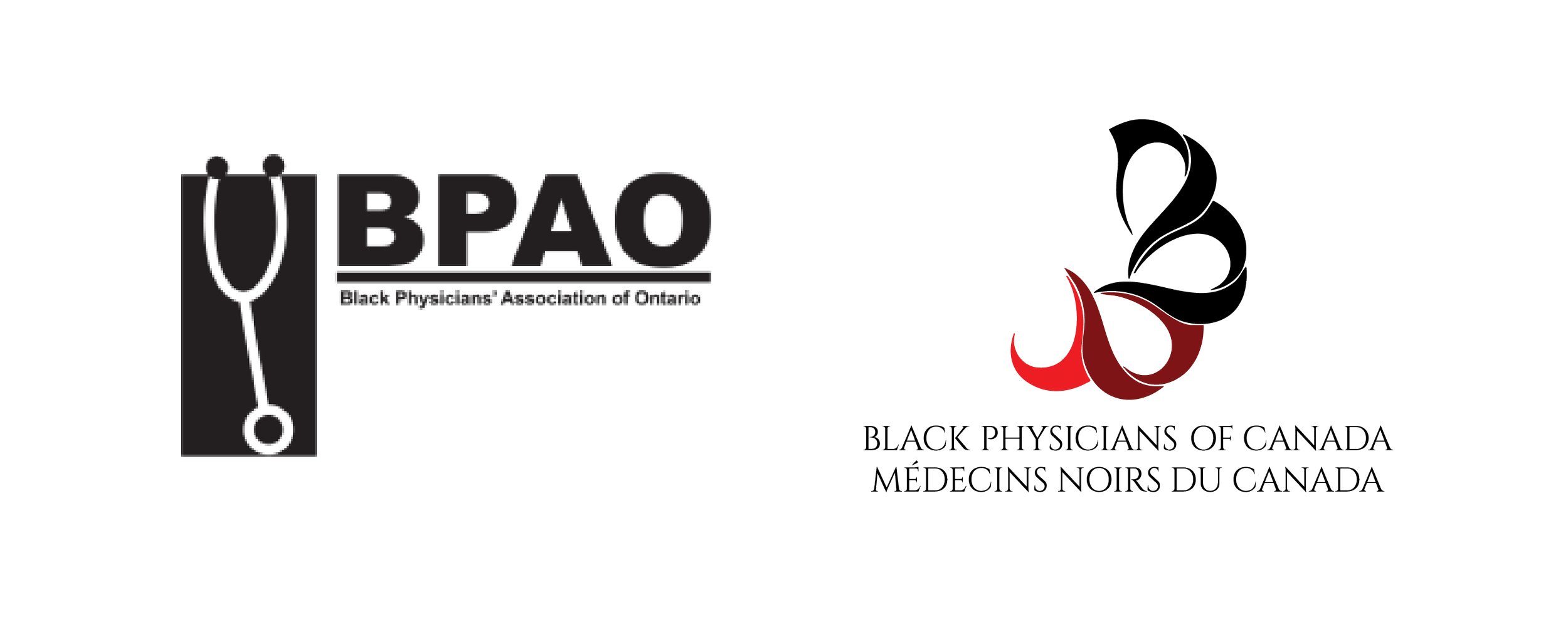Position Statement of the BPAO and BPC on Ontario’s Revised IMG Residency Eligibility Policy
Summary
The Black Physicians’ Association of Ontario (BPAO) and Black Physicians of Canada (BPC) strongly oppose the Ontario Ministry of Health’s recent change to IMG residency eligibility criteria. The new policy, requiring two years of Ontario high school attendance for first-iteration eligibility, is arbitrary, inequitable, and introduced without consultation. It risks worsening Ontario’s physician shortage and undermines public trust in the residency match process.
Background and Context
On October 8, 2025, the Canadian Residency Matching Service (CaRMS) updated its eligibility criteria to reflect a new policy from the Ontario Ministry of Health. Beginning with the 2026 R-1 Match, only international medical graduates (IMGs) who have completed at least two years of Ontario high school are eligible to apply for Ontario-designated IMG residency positions in the first iteration of the match (carms.ca).
Those IMGs who do not meet this requirement, unless exempted (e.g., children of guardians posted outside Ontario for diplomatic or military service), will be relegated to the second iteration, where any unfilled positions are merged into a competitive stream for all applicants (Canadian Medical Graduates and IMGs) (carms.ca).
The Ministry’s stated rationale is to strengthen local retention by giving first-round priority to those with stronger ties to Ontario.
However, this abrupt mid-application cycle policy change has been met with widespread criticism from IMGs, advocacy groups, and provincial partners (toronto.citynews.ca).
Position
The BPAO and BPC are calling for an immediate pause on the implementation of the new IMG eligibility policy in order to facilitate further consultation, and to allow for IMGs who applied under the previous eligibility rules to be provided an equitable transition arrangement.
Rationale
1. The two-year high school requirement is arbitrary and not evidence-based
Attendance at high school in Ontario is not a reliable predictor of where a physician will ultimately practice. Many IMGs, regardless of their schooling, choose or are obligated through return-of-service (ROS) agreements to practice in underserved or rural Ontario communities.
Other provinces with IMG eligibility rules emphasize more direct connection metrics such as prior residence or work experience rather than high school attendance (wes.org).
The Ministry has not published any data demonstrating that this requirement improves retention or addresses physician distribution (wol.com).
2. The policy undermines fairness, transparency, and trust in the match process
Introducing a major eligibility change mid-application cycle upends planning for applicants who have already invested significant time, money, and relocation logistics (wol.com).
Qualified IMGs who meet all other criteria but lack the high school requirement will be penalized despite having equivalent or superior credentials.
The policy risks violating principles of equity and non-discrimination, particularly for IMGs who are Canadian citizens or permanent residents but did not attend high school in Ontario (wes.org).
3. The policy risks worsening Ontario’s physician shortage
Currently 6.5 million Canadians are without a family doctor (cma.ca), including more than over 2.5 million Ontario residents. (toronto.citynews.ca) This represents approximately 38% of all unattached patients across the country.
IMGs disproportionately fill gaps in underserved and rural settings, and limiting their entry into first-iteration positions could cut off a vital recruitment pipeline.
The Ontario Physician Recruitment Alliance (OPRA) has reported that 276 family medicine residency spots were unfilled in 2025, 96 of which were in Ontario (opra.ca).
Delays in IMG entry to training may push candidates to other provinces or outside Canada, further worsening physician shortages.
4. The policy conflicts with Ontario’s return-of-service and recruitment goals
All IMGs entering Ontario postgraduate positions are required to sign a five-year Return-of-Service contract, binding them to practice in Ontario communities (ontario.ca).
The new eligibility restriction penalizes those willing to commit to Ontario by denying them early access, even though they would still be bound by the same ROS obligation.
5. The exemptions are too narrow and do not mitigate harm
While the policy exempts IMGs whose guardians were posted outside Ontario for diplomatic or military service, this narrow exception does not address the many other IMGs who legitimately lack Ontario high school attendance but intend to practice in Ontario (carms.ca).
This exemption does not adequately address equity concerns, and many affected applicants are left without recourse.
Calls to Action
Immediate suspension or pause of implementation
The BPAO and BPC calls on the Ontario Ministry of Health to pause enforcement of this eligibility change for the 2026 cycle to allow for consultation, stakeholder input, and transition planning.A full, transparent consultation review
The Ministry should conduct a public review involving IMGs, faculties of medicine, health system stakeholders, and equity experts to evaluate both the intended and unintended consequences of this policy.Adopt more just, evidence-based criteria
Instead of using high school attendance, eligibility should be based on prior Ontario residence, duration of residence, clinical or volunteer service in Ontario, or a demonstrated commitment to underserved areas.Data transparency and evaluation
The government should publicly share any data or projections that justify these restrictions and commit to monitoring outcomes to ensure the policy does not worsen access to care.Safeguards for those already in the application process
IMGs who applied under previous eligibility rules should be grandfathered or provided an equitable transition arrangement to avoid retroactive harm.
Conclusion
As Canadians, our shared commitment is to deliver high-quality health care for all, regardless of where one attended high school.
The BPAO and BPC believe that policies guiding medical education and residency matching must be rooted in fairness, transparency, evidence, and equity.
The new Ontario policy restricting first-iteration access based on high school attendance is arbitrary, undermines trust, and risks worsening the healthcare crisis. It disproportionately harms qualified IMGs who are ready and willing to serve Ontario communities.
The BPAO and BPC reaffirm its commitment to advocate at all levels. This includes the Ministry, medical faculties, and community partners. A fair, rational, and inclusive approach to IMG residency training is required.
Dr. Mojola Omole MD, FRCSC
President, Black Physicians’ Association of Ontario
Dr. Nnamdi Ndubuka, MD, PhD, MPH, C.Dir. CCPE
President, Black Physicians of Canada


